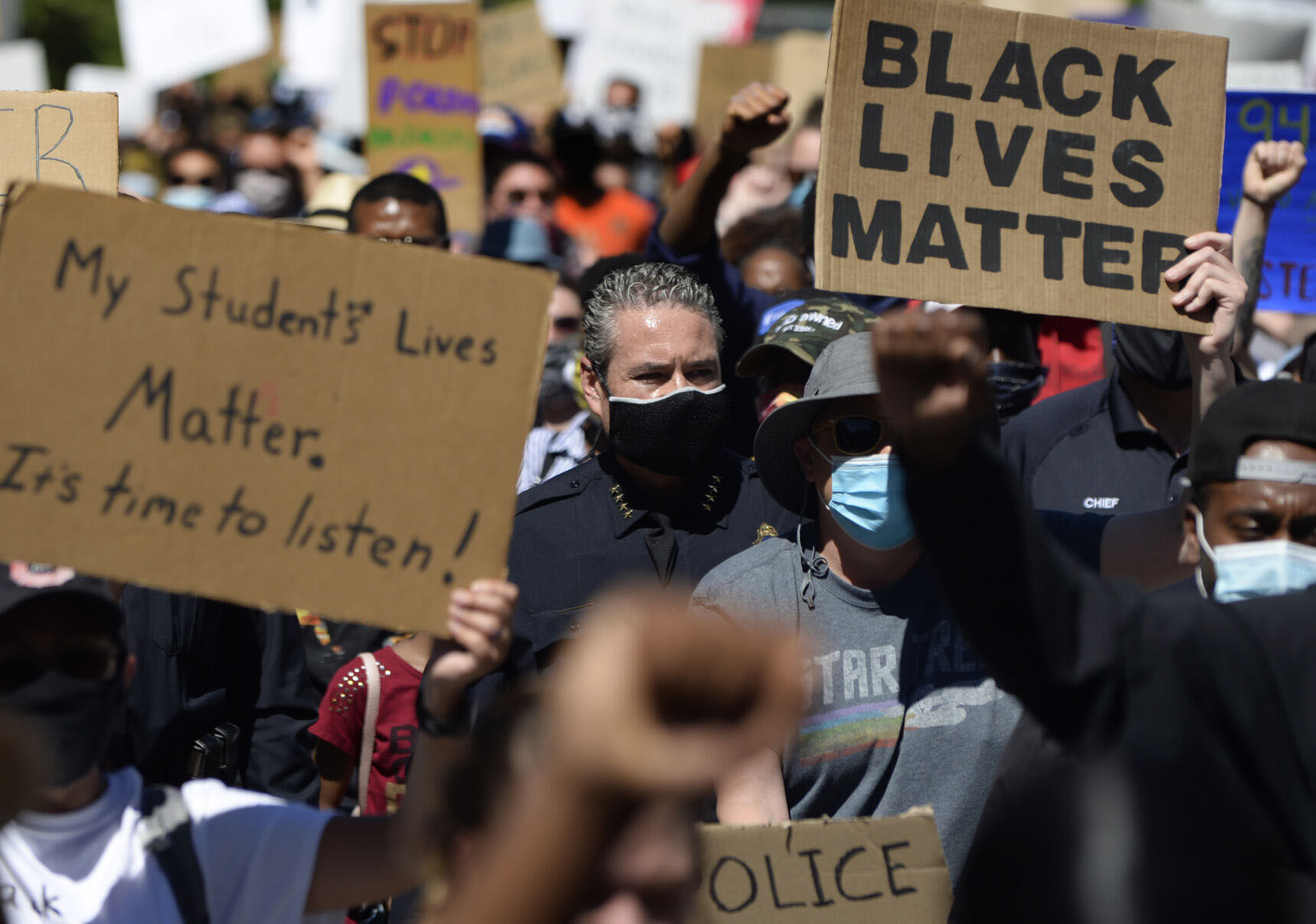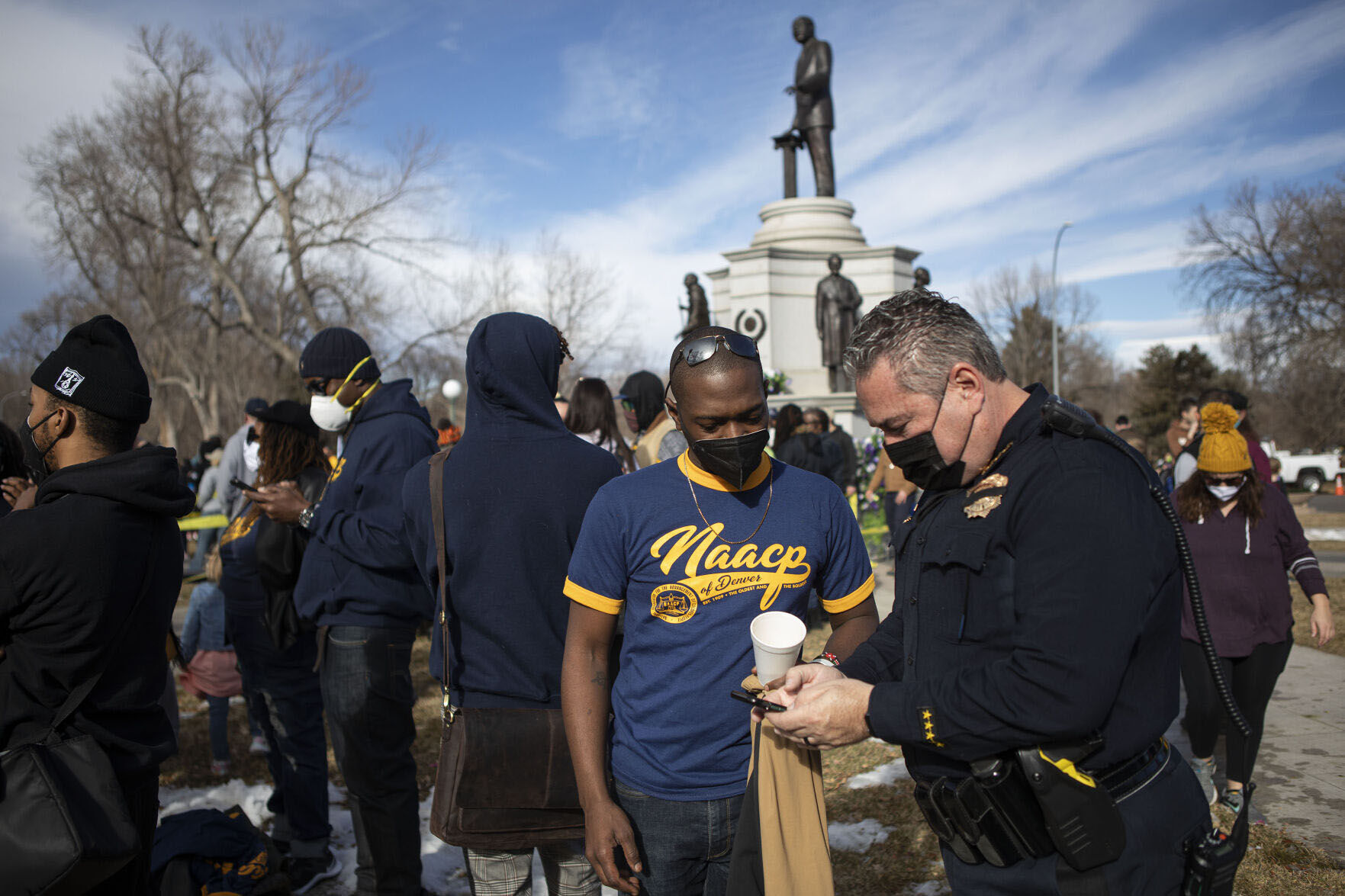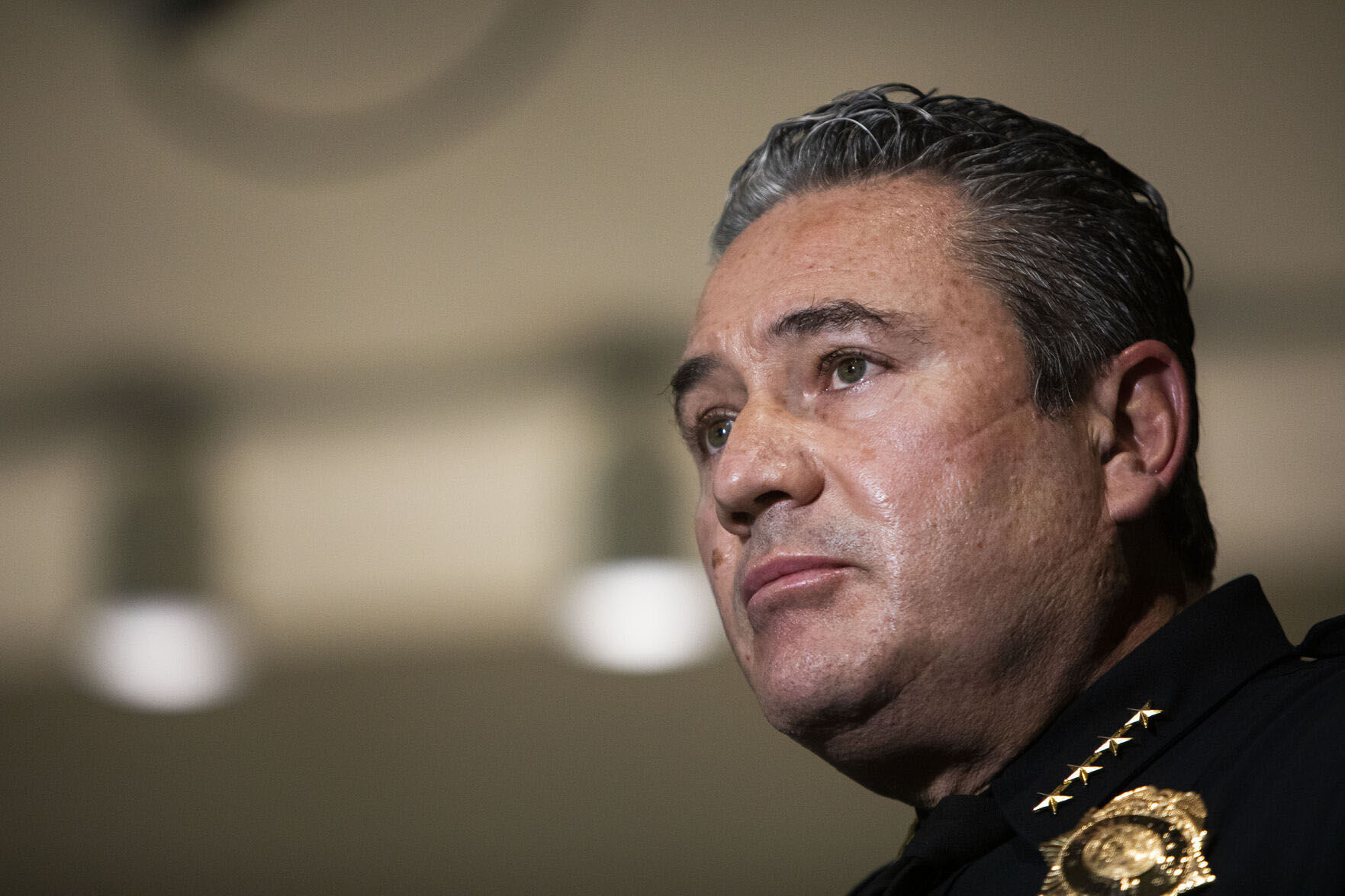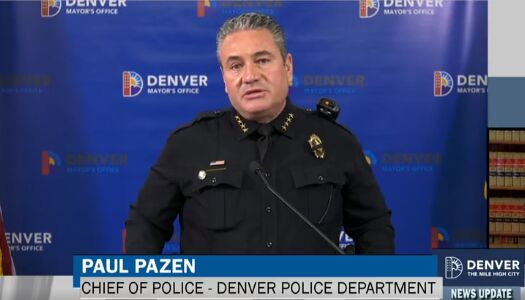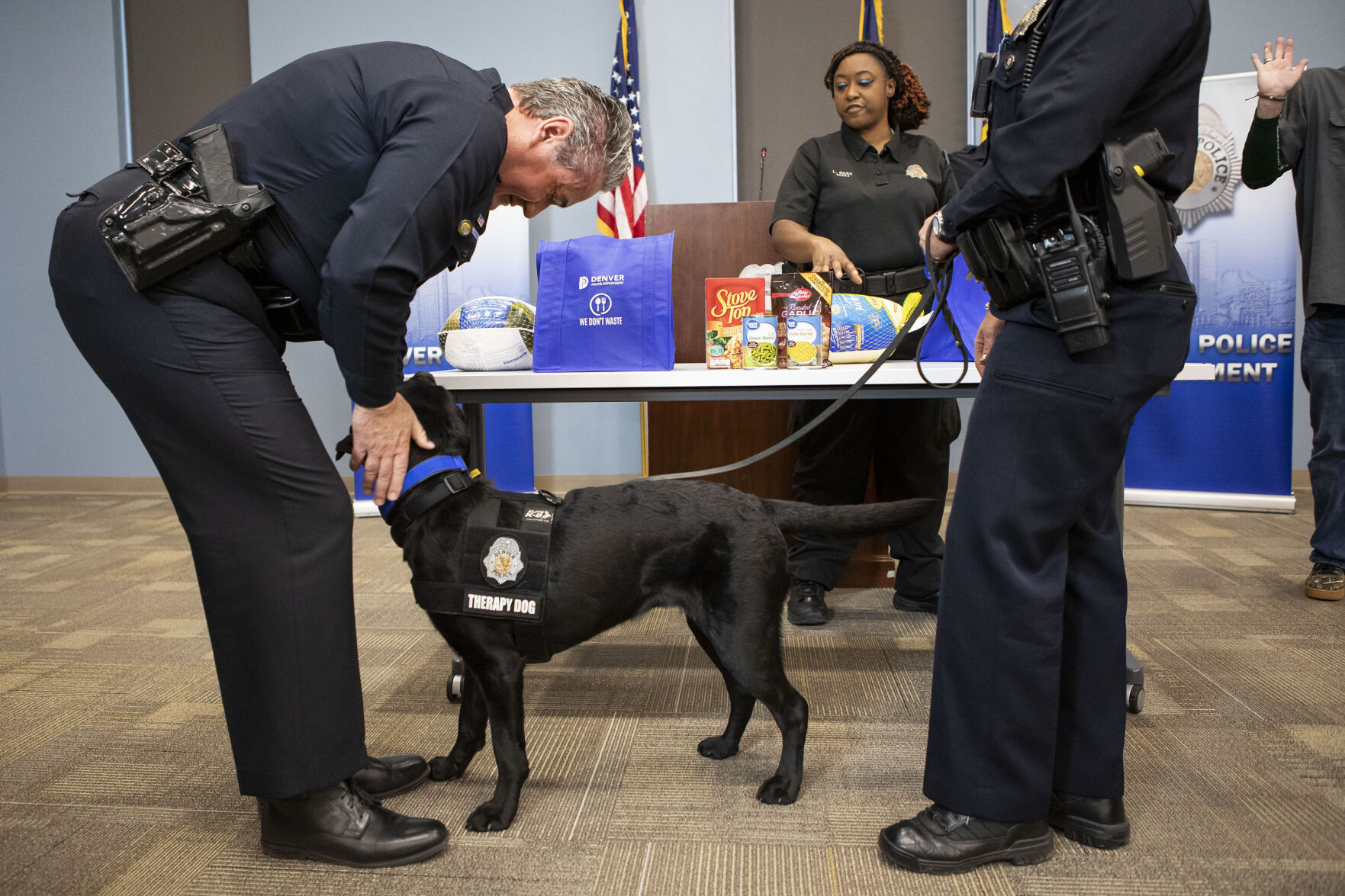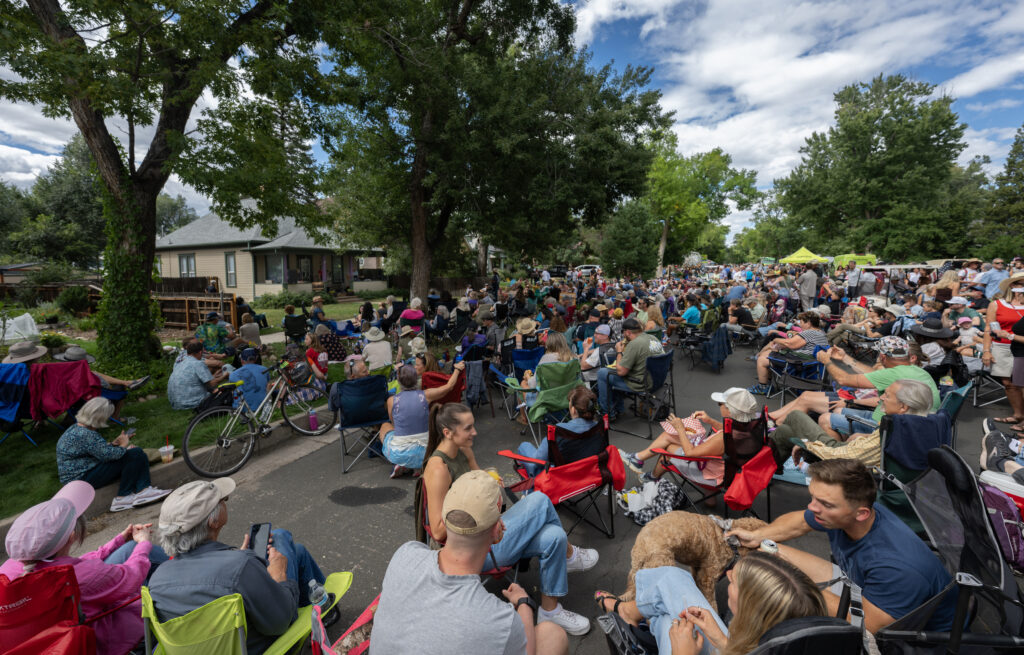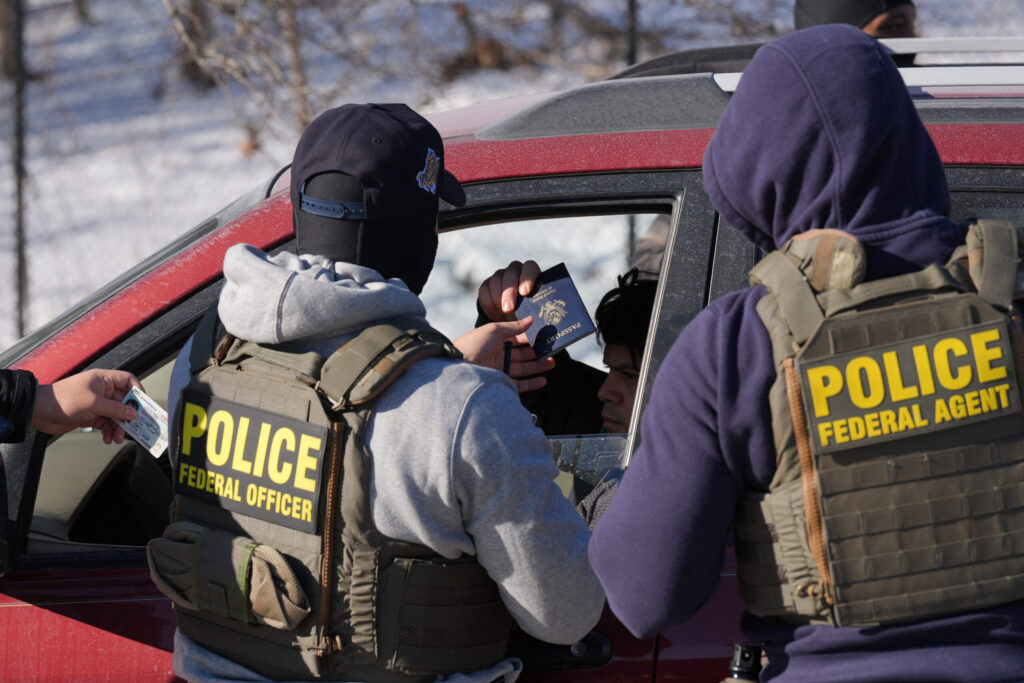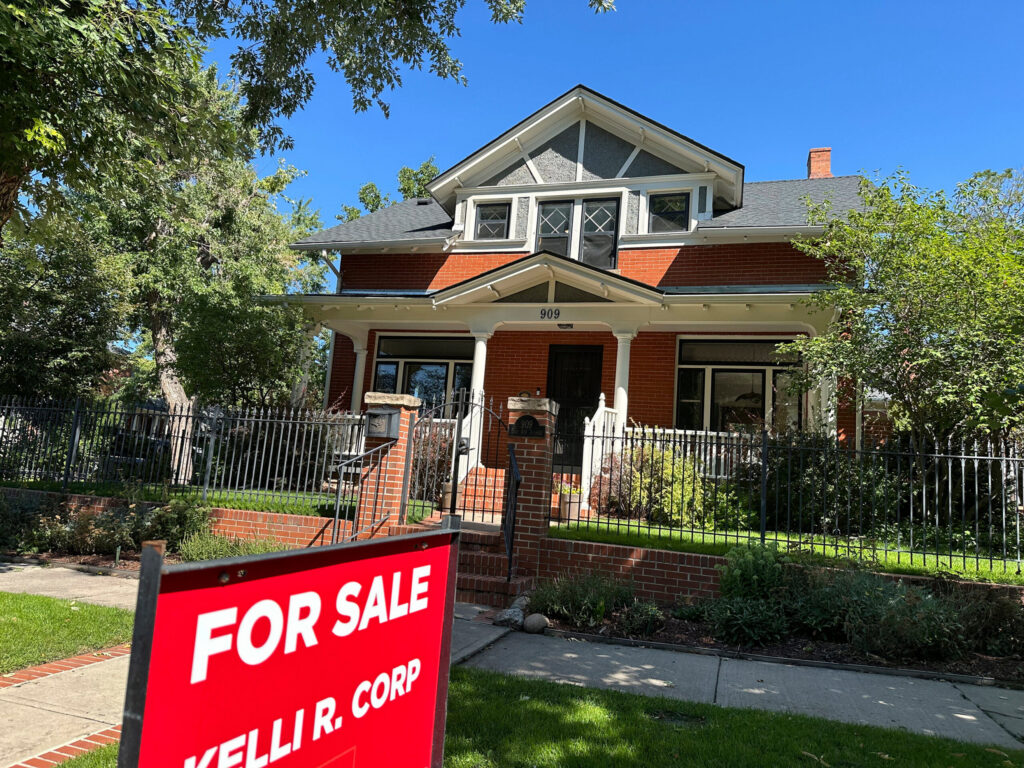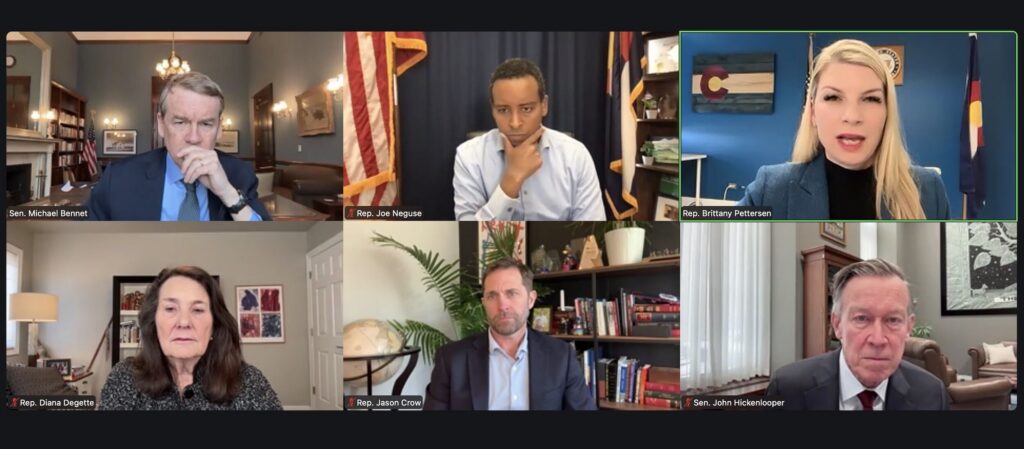Denver leaders reflect on Paul Pazen’s legacy as police chief
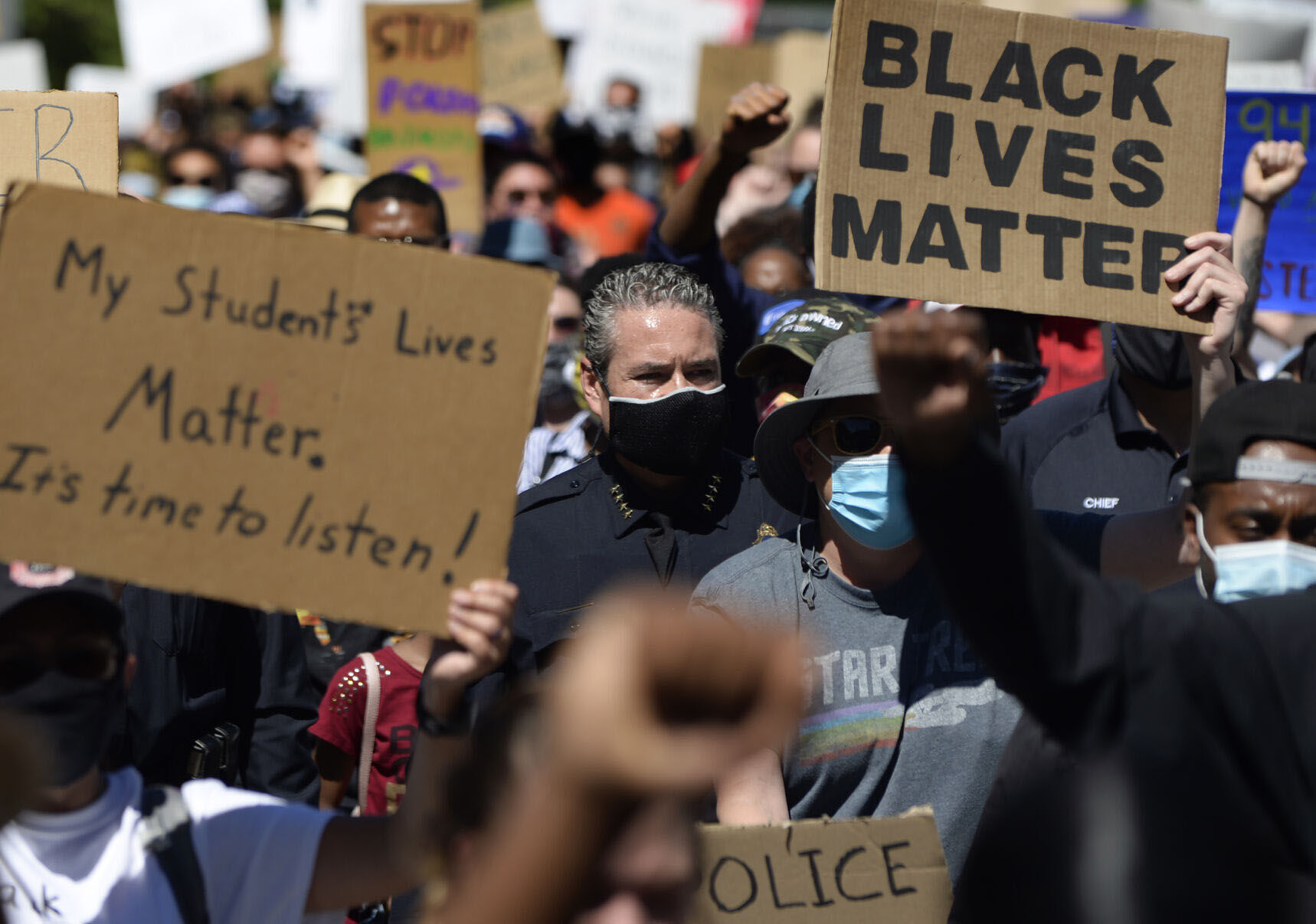
Following a tumultuous period punctuated by a statewide rise in violent crime, recruitment woes amid understaffing, climbing 911 response times and nearly three years of a global health crisis, Denver’s chief of police is headed for retirement.
A law enforcement veteran of nearly three decades, Chief Paul Pazen will leave a legacy many said they never saw coming, from starting out as man revered for his community-focused approach toward policing to a chief faced with unprecedented times and numerous local controversies.
Community activists express hopefulness, caution for Denver’s new police chief
A spokesman for Pazen said he is on a previously planned trip and is not available for interviews. Pazen issued a statement on Wednesday, announcing he will retire in October.
“It’s been an honor to serve the people of this city, and I couldn’t be prouder to have done it alongside these dedicated women and men of the department who’ve answered the call to protect the residents of Denver no matter the circumstance,” Pazen said. “It’s important to me that the next police chief take the reins at this time so the department and our officers are well positioned for the future of policing in our community.”
Pazen served at nearly every level of the department with integrity and a focus on community, Mayor Michael Hancock said, calling his career distinguished.
Supporters of Pazen said he followed through on promises to innovate within the department and smartly approached some of the city’s public safety challenges, all the while doing the best he could in remarkably trying times for law enforcement.
Mitch Morrissey, a former district attorney of the 2nd Judicial District and a fellow at the Common Sense Institute, said Pazen’s department dealt with violent attacks on state and city property during 2020 protests, significant spikes in crime rates and an “anti-law enforcement” mentality within the state legislature.
Pazen was a voice willing to call out the state legislature for recent laws that critics say paved the way for surges in crime, such as auto thefts, Morrissey said, adding “that was extremely important.”
Pazen also had to try and recruit new officers to replace veterans retiring sooner than they might were it not for the tense work environment, he said.
“He was chief during a very difficult time to be chief, and I think he stepped up to do the best he could do,” Morrissey said.
Pazen’s tenure as chief became a confounding four years for critics, who said they watched the law enforcement officer they knew slowly disappear.
Christie Donner, executive director at the Colorado Criminal Justice Reform Coalition, said she met Pazen several years ago and knew him as an engaged commander, someone anyone could have honest conversations with and a good representative of the police department.
She was excited to hear he would become chief. Then, she said, came a dysfunctional response to George Floyd protests, heaping payouts to demonstrators, sweeping arrests at Union Station and rhetoric from Pazen toward fentanyl that reminded her of the war on drugs and “crack hysteria.”
“Where did Pazen go? Where did that guy go, because the guy we knew prior to being chief is not the guy who showed up to be chief,” Donner said. “The why behind that, I don’t know.”
A lifelong dream
Pazen stepped into the role in June 2018 known as a community-oriented commander, and a longtime officer who was vested in Denver. When he talked about the surge in crime, he often noted it’s happening to the city he grew up in.
If there was a community event, Pazen was there. Approachable, affable and smiling – to the point Mayor Hancock nicknamed him “Paul ‘Smiley’ Pazen” and introduced him as such at a press conference after Pazen’s selection as chief.

“There is no greater police officer connected to the community of Denver than Paul ‘Smiley’ Pazen,” Hancock said.
Working in the department was a lifelong dream, the new chief said.
“The passion that I have to serve our community members is far deeper than myself as a person. This goes back generational,” Pazen said in 2018.
Pazen said his grandmother instilled a devotion for community service among her children and grandchildren as she raised two young girls in the Lincoln Park projects, working hard to get on her feet and then give back to her community. Then, as his single mother raised him, Pazen said they occasionally needed help, and he wanted to pay it forward through a career in public service.
In some of his first remarks as head of DPD, Pazen promised innovative policing, a collaborative leadership approach and an inclusive department from the executive command staff down.
Asked during a 2018 news conference about his stance on use of force policies, Pazen called the issue “as challenging of an area as we can face,” saying the department needed to make sure it was “utilizing that power, not abusing the power,” and maintaining community trust. He vowed to give officers the training they needed to follow a new use of force policy at the agency.
It’s one thing to be selected over stiff competition for the job, Pazen said, but the real measuring stick would be what he did with the role.
Promises to innovate
Pazen pursued alternative policing initiatives. As chief, he became a champion for the city’s Support Team Assisted Response (STAR) program, which pairs a mental health clinician with a paramedic. The units take low-risk calls that come into the 911 center regarding someone experiencing a behavioral health incident.
STAR launched in June 2020 and has since handled more than 2,000 calls to which police officers would have otherwise responded. The STAR teams have never called for police backup, according to the city. The program went on to become a national model, and a hallmark of Pazen’s tenure.
U.S. Sen. Michael Bennet, D-Denver, introduced a bill to fund programs inspired by STAR across the country, although the bill took heat from conservatives as political maneuvering from Bennet. Pazen stood firmly by the program as political spats brewed, saying it provides people with services they need while freeing officers to address violent crime. Supporting better outcomes for people in crisis “is not a political stance,” he said in July.
Denver’s new police chief steps up following Pazen’s retirement announcement
STAR is the type of work for which District 2 Councilmember Kevin Flynn said Pazen should be remembered.
“It was his program. It started within the police department. Officers have embraced it because it leaves them more time to handle the more serious calls,” Flynn said.
Flynn said Pazen should also be recognized for forward-thinking during the past two years, a time of incredible challenges in policing. He expected Pazen to retire when Hancock left office, but not this soon, and he wishes Pazen was staying longer, he said, adding he could continue expanding co-responder programs.
Flynn also praised “data-driven approach to policing” and said Pazen made the right move identifying hot spots in the city and deploying impact teams to reduce crime in those areas. The department took “a lot of illegal guns off the streets” under Pazen’s leadership, a crucial effort in making neighborhoods safer, Flynn said.
He’ll remember Pazen as the innovator he promised to be, and as a leader who did the best he could in staffing a police department as recruitment and retention problems grew within the profession, Flynn said. The department is short about 240 officers, Flynn noted, and he recently attended an academy graduation for 18 new officers, despite the class having 50 slots.
“It’s difficult to recruit officers these days in just the general atmosphere since George Floyd,” Flynn said.
Despite STAR’s success, Pazen’s visibility throughout its implementation was not without criticism. The program is no longer managed by the police department, leaving Vinnie Cervantes, a well-known advocate for alternative policing, questioning why Pazen remained a central spokesman for STAR. Cervantes helped found the Denver Alliance for Street Health Response.
“I think it gives the false appearance that police are still running the program,” he said. “I also think that it’s really asking the wrong people to speak for the program.”
The program is a vision of community members, he said, and largely conceptualized by people on the ground who ended up feeling pushed out of STAR’s management by Pazen and the city.
To Pazen’s credit, he was a steadfast supporter of the idea, had worked on additional similar initiates as a commander, and undoubtedly speed-tracked the program’s launch, Cervantes said. But Pazen was also hesitant to cede control of the program to community members helping shape it, and the relationship between the city and citizens involved in its formation grew contentious, Cervantes said.
On a Thursday in May 2020, a meeting to plan the launch of STAR was juxtaposed by a police response at protests that same day entailing tear gas, rubber bullets and flash bangs, Cervantes said.
As a street medic who worked during the days-long demonstrations, Cervantes said he “witnessed things that I had never seen before from police during protests,” including property damage caused by police use of force.
He saw Pazen’s response as hypocritical.
“The optics of showing up with people, arm-in-arm with people during the day, contrasted with what police were doing during the night,” he said.
A turning point
Lisa Calderon, who leads an organization that trains women to run for office as Democrats, called the George Floyd protests a turning point in Pazen’s leadership.
Calderon said she had high hopes for Pazen when he took office. The long-time law enforcement officer grew up in Denver, knew the city well and was a listener, she said. As the second Latino to serve as Denver’s chief of police, “the thought was that he would lead the department with more compassion,” Calderon said.
“It didn’t take long for that to quickly erode,” she said.
She grew frustrated as Pazen took a tough stance during the George Floyd demonstrations, she said, followed by “a pattern of his doubling down on police violence.”
Donner said litigation clearly showed the department to be ill-prepared and undertrained to handle the protests.
The department lost a landmark case that awarded nearly $14 million to a dozen protesters after a jury agreed police used excessive force responding to the protests.
Pastor Bryan Sederwall of the Denver Dream Center said he knew a different side to the chief. The two met roughly a decade ago as Pazen joined the center’s work helping ex-gang members and former inmates reintegrate into society.
Sederwell saw the chief showed up to food banks at Ball Arena the morning after the protests, putting boxes of groceries into families’ cars.
When they first started working together, Sederwall said he was immediately struck by how relational Pazen was. He also knew he could count on Pazen to be hands on at events hosted for at-risk people and youth.
At the center’s annual Father’s Day event for former inmates and their families, Pazen was a fierce competitor during the water balloon fight that closed out each celebration.
“It was the humanity. He saw people. He wasn’t looking at gang tattoos. He wasn’t looking at prison records,” Sederwall said. “He saw them for their future.”
Sederwall said he felt honored to know the chief during 2020, watching him navigate the pandemic, protests and “crazy political season.”
“The way he policed really was a reflection of community,” Sederwall said.
What’s next for Paul Pazen? Colorado’s political community weighs in
No surprise
Then came the LoDo shooting in July, where Denver police fired into a crowd at a suspect, injuring him and several bystanders. A grand jury investigation into the case remains open. Donner, Calderon and Cervantes all described the shooting as a stain on Pazen’s legacy. Donner suspects it was “the straw that broke the camel’s back” for the chief.
The president of the local police union did not respond to interview requests, although the organization provided a statement regarding Pazen’s departure.
It’s no surprise, the union’s statement said, and on trend with a flood of law enforcement officers leaving their jobs “as the risks to personal safety, livelihood and freedoms are higher than they have ever been.”
“On behalf of the men and women of the Denver Police Protective Association (PPA), we wish Chief Pazen well in his upcoming retirement and we understand the increasing demands on a law enforcement officer in the State of Colorado and the City of Denver,” the statement said.
Donner said the point of her criticism is not to say Pazen does not care. She knows he does, she said, and she wishes him peace in whatever he does next.
“We do wish him well,” she said. “We’re just glad he’s not chief.”
Sederwall hoped for the opposite. It was widely understood Pazen was likely to leave when Hancock’s term ended. Police chiefs typically do when an administration changes over.
But while walking away from a recent lunch with Pazen, the pastor had a sense the chief’s retirement was closer than people expected, he said. Still, Sederwall hoped he was wrong.
“I love Chief Pazen and highly respect him,” Sederwall said. “For me, it was sad.”
